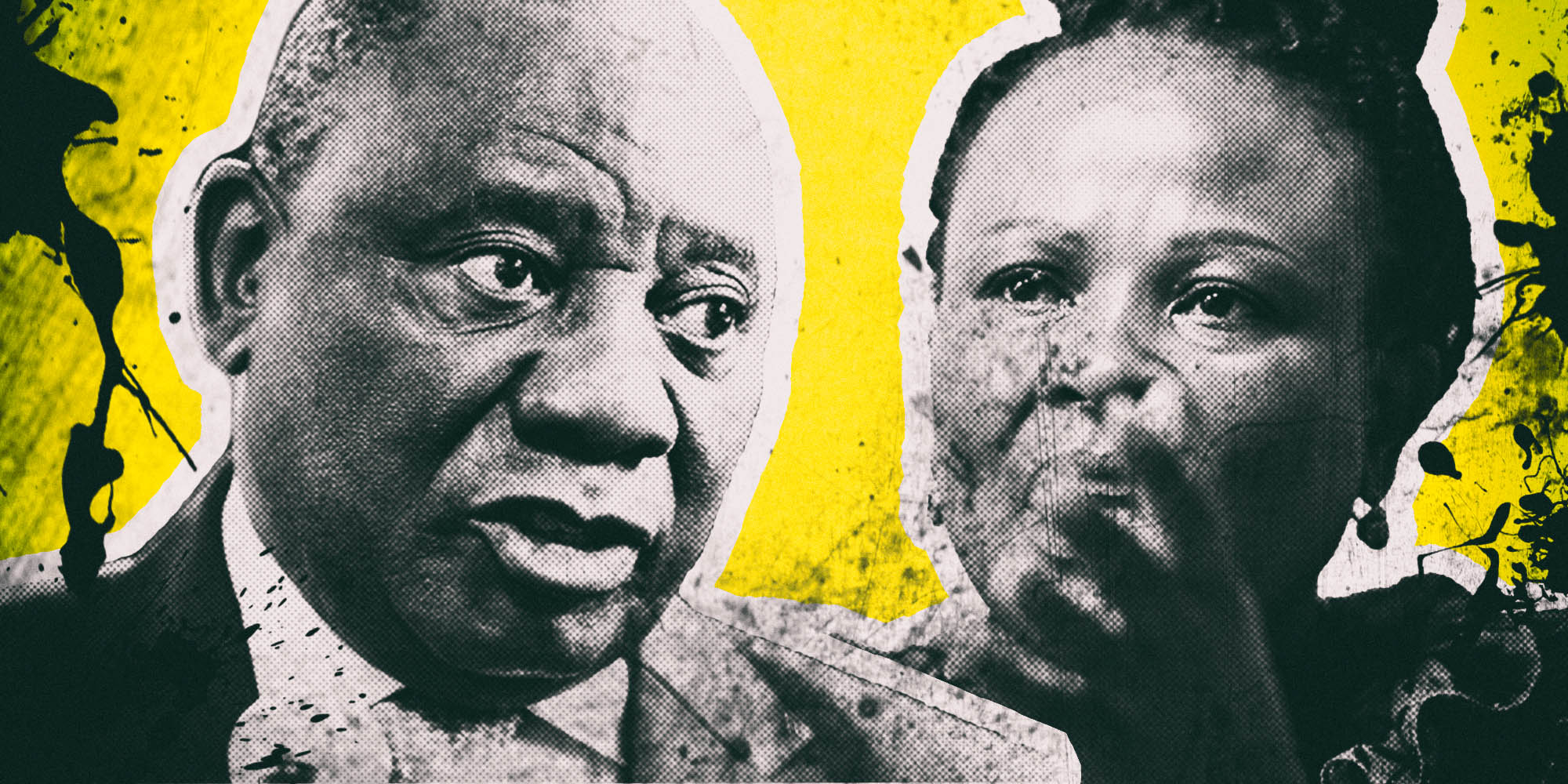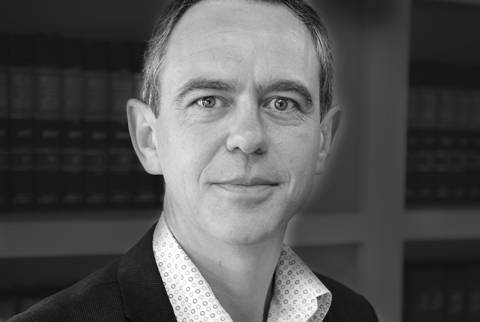When it was revealed that the corrupt Bosasa company had made a R500,000 donation to President Cyril Ramaphosa’s ANC presidential campaign (CR17), that the campaign burnt through millions of rand and that the public protector had obtained “incriminating” bank statements of the CR17 campaign, Ramaphosa’s opponents must have thought that the subsequent public protector report on the matter would deal a devastating blow to the Ramaphosa project by exposing some of the smallanyana skeletons in the Ramaphosa campaign.
But things didn’t turn out that way. The subsequent public protector report turned out to be of such low quality, and so lacking in impartiality and fairness, that the North Gauteng High Court had no choice but to declare it invalid in the most scathing terms. Instead of everyone talking about the manner in which large sums of money donated to political candidates have the potential to corrupt the political process, everyone is talking about how tragically incompetent and biased the public protector is.
Make no mistake, there are good reasons to talk about the high court judgment in the case of President of the RSA v Public Protector. While it is impossible to discuss every aspect of the case, let’s have a look at some of the major points of interest.
The court invalidated the public protector’s finding that the President misled the National Assembly in breach of the Executive Members Ethics Code because she made a fatal error of law and a fatal error of fact. The error of law occurred when the public protector inexplicably “reframed” (in other words, rewrote) the applicable section of the Ethics Code and then applied this obviously wrong text to the facts. The court pointed out that the public protector was therefore “confused about the legal foundation of her finding”.
More damning, the report contradicts itself (perhaps due to a lack of basic editing), stating in one place that the President had deliberately and/or inadvertently misled Parliament, while elsewhere finding that the President had deliberately misled Parliament.
To make things worse, this is not the first time the public protector had made the same mistake. In the report on Pravin Gordhan she also “reframed” the relevant section of the code. When the court pointed out this mistake when considering Gordhan’s request to interdict that report, the public protector did not back down (or, as most half-competent lawyers would do, check the law), but went on attack instead.
In legal papers for leave to appeal in the Gordhan case, she claimed that the court “was plainly wrong” when it corrected her wording of the Code “as the Code makes pellucid that even inadvertent misleading of the Legislature is sufficient”. She repeated her criticism of the high court and Minister Gordhan in scathing terms:
“The Court paid absolutely no attention to the public interest at stake here and was preoccupied mainly with Mr Gordhan’s hyper-technical but woefully flawed arguments that a statute which prohibits inadvertent violations must only be read to outlaw wilful misrepresentations.”
Attacking a judge and a legal opponent in such terms when they are right and you are the one who got the law wrong and then did not even bother to double-check the law is so breathtakingly stupid and arrogant that it leaves me without words.
The error of fact occurred when the public protector found that the President had acted in good faith but had nevertheless deliberately misled Parliament. To make things worse, when the President pointed out that it is not possible to deliberately mislead Parliament while acting in good faith (a bit like finding X shot Y in a peaceful and non-violent manner) the public protector called this “preposterous” (a favourite term). The high court wryly comments on this as follows:
“This response displays a deep-seated inability, or refusal, to process facts before her in a logical and fair-minded manner. Such a response is difficult to reconcile with her constitutional obligations. Furthermore, it was totally irrational...”.
A more fundamental problem for the public protector was that she broadened the scope of the investigation to include the CR17 campaign donations without having jurisdiction to do so. In terms of the Constitution the public protector has the jurisdiction to investigate any conduct in state affairs, or in the public administration in any sphere of government. In terms of the Public Protector Act she can also investigate private entities but only with respect to public money which may have changed hands in a corrupt manner. She cannot investigate matters purely in the private sphere.
This does not mean that corruption in the private sphere cannot be investigated. It can and must be investigated. By the Hawks. Not by the public protector. If CR17 had received money from a government department, or from Eskom or another state entity, the public protector would have had jurisdiction to investigate CR17. But CR17 received only private donations, while its purpose was to advance the campaign of Ramaphosa and other candidates vying for ANC office.
The court pointed to the Constitutional Court judgment in Ramakatsa v Magashule where it was pointed out that political parties are private entities and that they have a right to regulate their own internal affairs (including how internal elections are conducted), to conclude that the public protector had no jurisdiction to investigate private donations made to a private entity funding a political campaign inside a political party which is a private entity.
The most damning part of the judgment deals with the public protector’s suggestion that the CR17 campaign might have been involved in money laundering. In what must be a legal first, the court pointed out that the public protector invoked section 3 of the Prevention and Combating of Corrupt Activities Act (“PRECCA”) and “concluded that the evidence established a prima facie suspicion of money laundering based on PRECCA”. But, as the court noted: “She reached this conclusion despite the fact that PRECCA does not deal with money laundering.”
“To buttress her view the public protector then referred to PRECCA to found her conclusion that money laundering was involved. She made the firm finding that, based on PRECCA, the evidence at her disposal established a ‘prima facie’ suspicion of money laundering. We know that she had no evidence even remotely suggesting that money laundering was at play. We also know that PRECCA has nothing to do with money laundering. The legislation that establishes the offence of money laundering is the Prevention of Organised Crime Act (POCA), and particularly sections 4, 5 and 6.”
In the most devastating paragraph in the judgment, the high court explained in crisp language why this part of the public protector’s report was an unparalleled legal disaster, inadvertently providing a summary for why the public protector is incompetent and biased to such a degree that her removal has become imperative.
“Clearly the public protector had no foundation in fact and in law to arrive at her finding that the President had involved himself in illegal activities sufficient to evoke a suspicion of money laundering. In addition, the public protector based her finding on legislation that has nothing to do with the offence of money laundering. The conclusion is inescapable that in dealing with this issue the public protector completely failed to properly analyse and understand the facts and evidence at her disposal. She also showed a complete lack of basic knowledge of the law and its application. She clearly did not acquaint herself with the relevant law that actually defines and establishes the offence of money laundering before making serious unsubstantiated findings of money laundering against a duly elected head of state. Had she been diligent she would not have arrived at the conclusion she did…. On the money laundering issue, the public protector displayed anything but an open mind…. Had she considered this evidence properly, she could not rationally have concluded that these accounts were being used in such a manner as to warrant a prima facie suspicion of money laundering. We find that her findings on the money laundering issue were not only irrational, but, indeed, reckless.”
The remedial action imposed by the public protector was another legal disaster. She instructed the Speaker to refer a complaint against President Ramaphosa to the Joint Committee of Parliament, and to require Ramaphosa to declare the CR17 donations to the National Assembly. This despite the fact that the President is no longer a member of Parliament which means the Code no longer applies to him. In other words, she ordered Parliament to do what it was not permitted to do.
“The remedies fashioned by the public protector are thus ineffective and inappropriate. They also constitute an unlawful interference with the Speaker’s constitutional role to determine what measures are most appropriate to deal with conduct that is alleged to breach the Rules or Codes applicable to the National Assembly.”
Similarly, the public protector ordered the National Director of Public Prosecutions to investigate the (non-existent) money laundering and report back to her in 30 days. The court held that this order directly infringed on the prosecutorial independence of the National Prosecuting Authority. It expressed concern that the public protector did not know this.
“We are constrained to find that the public protector’s issuing of the remedial action to the NDPP coupled with her insistence, when the NDPP queried her, that she expected the NDPP to carry out her directive, displays, in our view, a complete lack of understanding on her part of the limits of her powers as provided in section 6(4)(c)(i) of the PPA in relation to matters falling under the NPA. We also find that she displayed a clear failure to grasp the meaning of the concept of prosecutorial independence decreed by section 32(1)(b) of the NPA Act. The PPA and the NPA Act are clear that she has no power to direct the NDPP to investigate any criminal offence and how to go about doing this.”
This judgment illustrates that a truly incompetent public protector lacking even the most basic legal knowledge and skill, and any ability to consider a matter with an open mind, is likely to do more harm to her own reputation than to the reputations of those she investigates. To that extent, Mkhwebane has been a godsend to Ramaphosa and the CR17 campaign. DM





